Confused About How to Be An Earth-friendly Consumer? Eco Labels Make Green Shopping Easier
By Diane MacEachern NABBW’s Going Green Associate
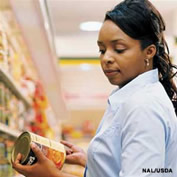 We read food labels to avoid trans fats, sugar, and salt. Why not look for eco labels on the cleansers, personal care products, furniture, clothing, carpeting and home improvement goods we buy so we can shift our spending to those that best protect the planet?
We read food labels to avoid trans fats, sugar, and salt. Why not look for eco labels on the cleansers, personal care products, furniture, clothing, carpeting and home improvement goods we buy so we can shift our spending to those that best protect the planet?
For example, the green-and-white Organic label issued by the U.S. Department of Agriculture (USDA) indicates food that has been produced according to a set of standards intended to eliminate use of pesticides, herbicides and other toxic chemicals. You can find this eco label on fresh fruit and vegetables, meat and poultry, bread and pasta, wine and beer, and all kinds of packaged foods, from sugar and flour to frozen pizza. You’ll even see it on on fabrics like cotton and hemp, since they’re agricultural products grown according to USDA standards.
As you shift your spending to the most earth-friendly products and services, choose those that have been certified to meet green and sustainable standards. You’ll help reduce your exposure to toxic chemicals, protect clean air and water, limit climate change, and save wildlife, parklands, rain forests and other natural resources.
Here are some of the most reliable and trustworthy eco labels to look for when you shop:
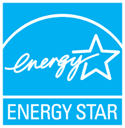 ENERGY STAR – A joint program of the U.S. Environmental Protection Agency and the U.S. Department of Energy; signifies energy-saving (and money-saving) light bulbs, lights and lamps, appliances and electronics.
ENERGY STAR – A joint program of the U.S. Environmental Protection Agency and the U.S. Department of Energy; signifies energy-saving (and money-saving) light bulbs, lights and lamps, appliances and electronics.
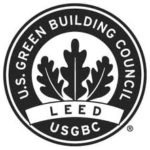 LEED – A program of the U.S. Green Building Council; signifies energy-saving and environmentally friendly buildings and, increasingly, homes.
LEED – A program of the U.S. Green Building Council; signifies energy-saving and environmentally friendly buildings and, increasingly, homes.
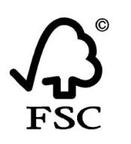 FSC Certified – A program of the Forest Stewardship Council; signifies wood products (flooring, furniture, lumber, paper, packaging) produced according to standards that protect and support forests.
FSC Certified – A program of the Forest Stewardship Council; signifies wood products (flooring, furniture, lumber, paper, packaging) produced according to standards that protect and support forests.
 USDA Organic – A program of the U.S. Department of Agriculture; signifies food and fiber produced according to USDA’s standards for minimal use of pesticides, insecticides and other toxic chemicals.
USDA Organic – A program of the U.S. Department of Agriculture; signifies food and fiber produced according to USDA’s standards for minimal use of pesticides, insecticides and other toxic chemicals.
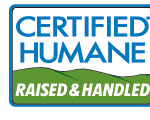 Certified Humane – A project of Humane Farm Animal Care; signifies that foods (eggs, milk and dairy, meat and poultry) have come from farms and other facilities that meet precise, objective standards for the humane treatment of farm animals.
Certified Humane – A project of Humane Farm Animal Care; signifies that foods (eggs, milk and dairy, meat and poultry) have come from farms and other facilities that meet precise, objective standards for the humane treatment of farm animals.
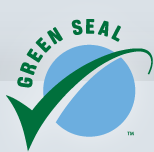 Green Seal – The focus of the non-profit Green Seal organization; signifies that a product (paint; cleansers; paper products; construction materials, printing and writing paper) or service (cleaning services; restaurants and food services) meets rigorous performance, health, and environmental criteria.
Green Seal – The focus of the non-profit Green Seal organization; signifies that a product (paint; cleansers; paper products; construction materials, printing and writing paper) or service (cleaning services; restaurants and food services) meets rigorous performance, health, and environmental criteria.
 Leaping Bunny – A program of the Coalition for Consumer Information on Cosmetics; signifies cosmetic, personal care and household products produced without new animal testing during any phase of product development by the company, its laboratories, or suppliers.
Leaping Bunny – A program of the Coalition for Consumer Information on Cosmetics; signifies cosmetic, personal care and household products produced without new animal testing during any phase of product development by the company, its laboratories, or suppliers.
 Fair Trade – Both these Fair Trade labels signify products that have been produced without child labor by adult farmers who are paid a living wage for their work. Look for Fair Trade certification on: coffee; tea; cocoa; chocolate; tropical fruits; sugar; rice; jewelry; furniture; clothing and crafts.
Fair Trade – Both these Fair Trade labels signify products that have been produced without child labor by adult farmers who are paid a living wage for their work. Look for Fair Trade certification on: coffee; tea; cocoa; chocolate; tropical fruits; sugar; rice; jewelry; furniture; clothing and crafts.
Cosmetics and Personal Care Products There are no universally recognized eco labels for cosmetics, shampoo, body lotion, deodorant, sun screen and other personal care products. Your best bet is to check what you use against Skin Deep, the Cosmetic Safety Data Base developed by Environmental Working Group, for products that contain the least harmful chemicals. Want more ideas on green shopping? See: Ten “Buy/Don’t Buy” Rules for Green Shopping
Diane MacEachern, the author of Big Green Purse: Use Your Spending Power to Create a Cleaner, Greener World, is passionate about empowering women to use their marketplace clout to protect the environment.
A best-selling author, successful entrepreneur, sought-after public speaker, and long-time conservationist, Diane encourages women to green the marketplace by choosing products whose use or manufacture offer the greatest environmental benefit.
Through her book, as well as her articles and speeches, she hopes to motivate women to take actions that will make a difference. She helps environmental organizations engage more women as members, activists, and donors. She also encourages companies to green their products to appeal to more women consumers.
Big Green Purse website was named “2007 Best Green Website” by FutureNow. The site offers eco-lifestyle tips and shopping suggestions, as well as opportunities to join One in a Million, a campaign to encourage one million women to shift $1,000 of their household budgets to eco-friendly products and services. This article was previously published on Diane’s website.



Leave a Reply
You must be logged in to post a comment.